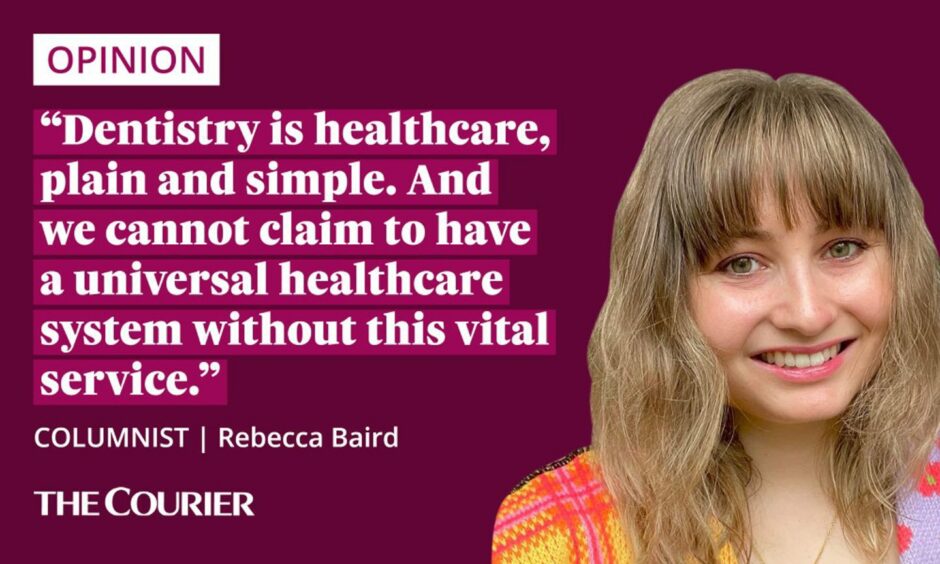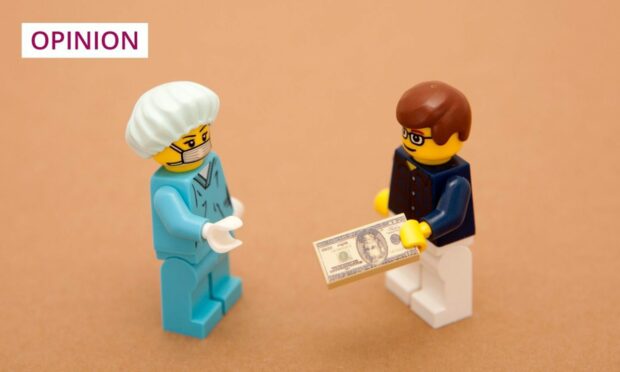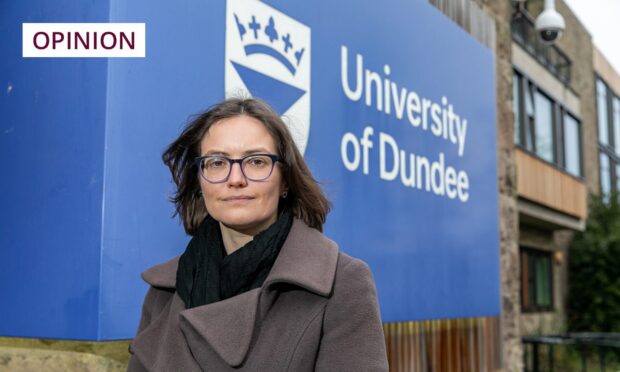I spat blood into the sink today.
Too much information? Probably. But times of crisis call for grim truths.
And crisis is what Dundee’s dental sector is in.
This week, the report of 12-year-old Aiden McKimmie waiting almost a year for orthodontic treatment deemed necessary by his dentist hit headlines.
It’s the latest in a series of shocking stories around Dundee’s dental services (or lack thereof) and the real-life impacts for residents.
Let’s not forget the terrifying ordeal of city student Nick Whelan, 20, who ended up in hospital close to death last year after an abscess in his mouth went untreated for more than six months because he couldn’t get a dentist appointment.
Yet NHS Tayside confirmed again this week that almost three years after Covid lockdowns created a backlog of appointments, still no practices in Dundee are taking on new NHS patients.

That’s three cohorts of students that have moved to the city to begin a significant chunk of their life – often with no vehicle of their own and reliant on local services – who cannot access this vital part of healthcare until, like in Nick’s case, it becomes the hospital’s problem.
It’s three years of babies being born with all the teeth they’ll ever need already in their tiny mouths, ready to grow and wobble and fall out, to be replaced by the second set which their grandparents will no doubt remind them “need to last a lifetime”.
For me, personally, it’s been three years of crossing my fingers that my good habits and good luck would run down the clock on the NHS backlog.
Because toothache can turn three years into three hundred, and it does not discriminate.
And this morning, while brushing my teeth, I spat blood into the sink.
High-street healthcare is dangerous set-up
In a functioning country, I would call up my dentist and make an appointment for a check up. But I can’t. I don’t have a dentist – and I can’t get one.
Unless, of course, I pay.
I know I’m not alone.
And though there are the logistical problems of waiting lists and qualified practitioners and local authorities and budgets yet to be solved – no doubt by people who are currently being paid an awful lot of money to not solve them – it strikes me that the underlying problem here is this: is it healthcare or not?
Dentistry lies in that weird undefined space between service and product.
I spent my early twenties as an optical assistant in an opticians, and it had the same air of high-street healthcare, where even though the service was deemed an NHS one, people still (in general) had to pay towards the treatments that were prescribed to them.
It was no wonder, I thought then, that people would avoid their regular eye tests; they didn’t want to spend money when they weren’t having any problems. It’s the same with the dentist.
But inevitably, like so many issues that these unpredictable sacks of sentient meat we live in cause, by the time the problem was noticeable, it was really, really bad.
Eyesight, much like enamel on a tooth, cannot be put back once it’s degraded; it can only be preserved.
Which means that prevention is always, always better than cure.
But for some reason, these services have persistently (in my lifetime) skirted privatisation, with complicated rules about how much the NHS can pay to fix… a body part, like any other.
You can’t budget for biology
The powers that be recognise these services to be health related in so far as we need our eyes to see, and our teeth to eat – but the quality of those experiences appears to matter very little.
And there’s a deep gap in understanding being created by this delineation of body parts to part-time private practice clinics.
It encourages members of the public to think of them as one-stop shops for spare parts or enhancements, not necessary medical services.
It makes us behave as if we can budget for biology, which can’t be done – America proves that every day.
I’ll never forget fetching the phone for my white-faced boss so he could ring Ninewells to arrange an emergency referral for a gentleman who’d come in for a routine eye test.
The patient came in a few weeks later to say he had a massive unruptured aneurysm sitting behind his eye. If it had made its way to his brain, he risked instant death.
Just as opticians don’t only look after your sight – they check your reactions, the health of your eye muscles, and for any signs of cancers or growths on the optic nerve or near the brain – dentists aren’t just checking your teeth.
They check for oral cancers, bacterial infections, jaw issues or even long-term health conditions.
A dentist can be the first to detect diabetes or HIV, just from a routine check-up.
Dentistry is healthcare, plain and simple. And we cannot claim to have a universal healthcare system without this vital service.
Yet the people of Dundee are expected to simply do without – or pay money we don’t have for private dental care.
So now there’s blood in the sink. And for now, I keep my fingers crossed there won’t be more tomorrow.












